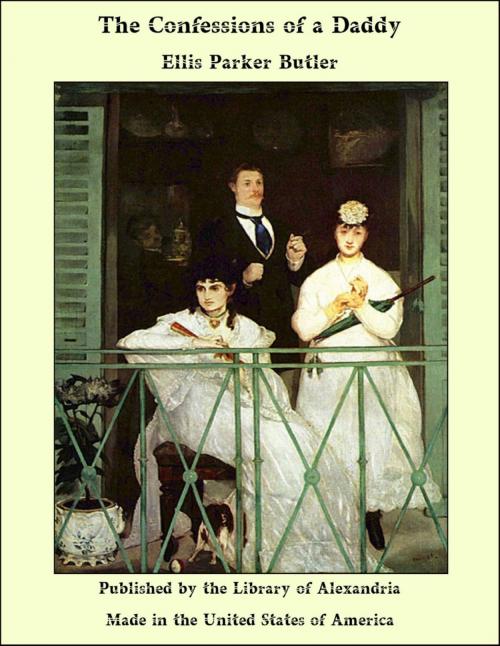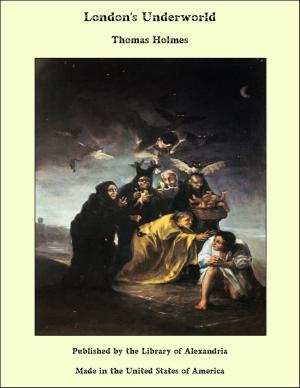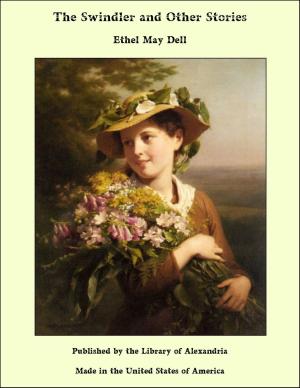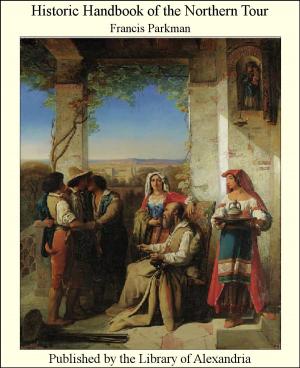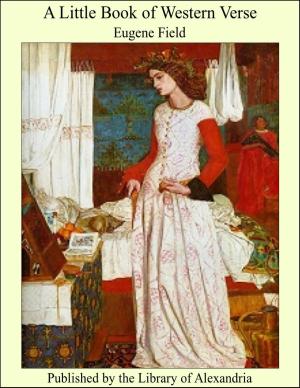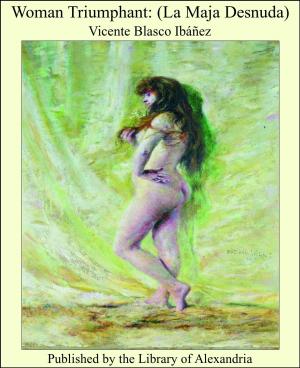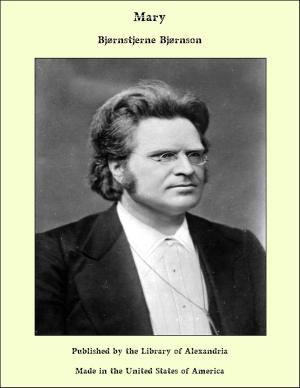The Confessions of a Daddy
Nonfiction, Religion & Spirituality, New Age, History, Fiction & Literature| Author: | Ellis Parker Butler | ISBN: | 9781465594556 |
| Publisher: | Library of Alexandria | Publication: | March 8, 2015 |
| Imprint: | Language: | English |
| Author: | Ellis Parker Butler |
| ISBN: | 9781465594556 |
| Publisher: | Library of Alexandria |
| Publication: | March 8, 2015 |
| Imprint: | |
| Language: | English |
I guess we folks that live up at our end of town think we are about as good as anybody in Colorado, and mebby a little better. We get along together as pleasant as you please, and we are a sort of colony, as you might say, all by ourselves. Me and Marthy make especial good neighbors. We don't have no fights with the other folks in our end of town, and in them days the neighbors hadn't any reason to fight with us, for we didn't keep a dog and we hadn't no children! I take notice that it is other folks dogs and children that make most of the bad feelin's between neighbors. Of course we had mosquitos, but Providence gives everybody something to practise up their patience, and when me and Marthy sat out on our porch and heard other people's children frettin' because the mosquitos was bad, we just sat there behind our screened porch and thanked our stars that we did n't have no children to leave our screen doors open. It was n't but right that me and Marthy should act accordingly. I don't mean that we were uppish about it, but we did feel that we could live a little better than our neighbors that had all the expense of children, and if our house was fixed up a little better, and we was able to go off three or four weeks in the summer to the mountains, when all the rest stayed right at home, we had a right to feel pleased about it. Lots of times we had things our neighbors could n't afford, and then the little woman would say to me: "Hiram, you don't know how thankful I am that we ain't got any children," and I agreed with her every time, and did it hearty, too. 'T was n't that we hated children. Far from it. We just thought that when we saw all the extra worry and trouble and expense that other people's children brought about, we were right satisfied to live the way we had lived the five years since we was married—our neighbors still called us the "Bride and Groom." Nor I can't say that we were happier than the other folks in our end of town, but we was more care-free. We lived more joyous, as you might say. One night when I come home from the store Marthy met me at the corner, and when I had tucked her arm under mine, I asked her what was the news. Bobby Jones had cut his finger bad; Stell Marks had took the measles; little Tot Hemingway had run off, and her ma had gone near crazy until the kid was found again; the Wallaces was n't goin' to take no vacation this year at all because Fred was to go off to school in the fall, and they could n't afford both. It was the usual lot of news of children bein' trouble and expense.
I guess we folks that live up at our end of town think we are about as good as anybody in Colorado, and mebby a little better. We get along together as pleasant as you please, and we are a sort of colony, as you might say, all by ourselves. Me and Marthy make especial good neighbors. We don't have no fights with the other folks in our end of town, and in them days the neighbors hadn't any reason to fight with us, for we didn't keep a dog and we hadn't no children! I take notice that it is other folks dogs and children that make most of the bad feelin's between neighbors. Of course we had mosquitos, but Providence gives everybody something to practise up their patience, and when me and Marthy sat out on our porch and heard other people's children frettin' because the mosquitos was bad, we just sat there behind our screened porch and thanked our stars that we did n't have no children to leave our screen doors open. It was n't but right that me and Marthy should act accordingly. I don't mean that we were uppish about it, but we did feel that we could live a little better than our neighbors that had all the expense of children, and if our house was fixed up a little better, and we was able to go off three or four weeks in the summer to the mountains, when all the rest stayed right at home, we had a right to feel pleased about it. Lots of times we had things our neighbors could n't afford, and then the little woman would say to me: "Hiram, you don't know how thankful I am that we ain't got any children," and I agreed with her every time, and did it hearty, too. 'T was n't that we hated children. Far from it. We just thought that when we saw all the extra worry and trouble and expense that other people's children brought about, we were right satisfied to live the way we had lived the five years since we was married—our neighbors still called us the "Bride and Groom." Nor I can't say that we were happier than the other folks in our end of town, but we was more care-free. We lived more joyous, as you might say. One night when I come home from the store Marthy met me at the corner, and when I had tucked her arm under mine, I asked her what was the news. Bobby Jones had cut his finger bad; Stell Marks had took the measles; little Tot Hemingway had run off, and her ma had gone near crazy until the kid was found again; the Wallaces was n't goin' to take no vacation this year at all because Fred was to go off to school in the fall, and they could n't afford both. It was the usual lot of news of children bein' trouble and expense.
